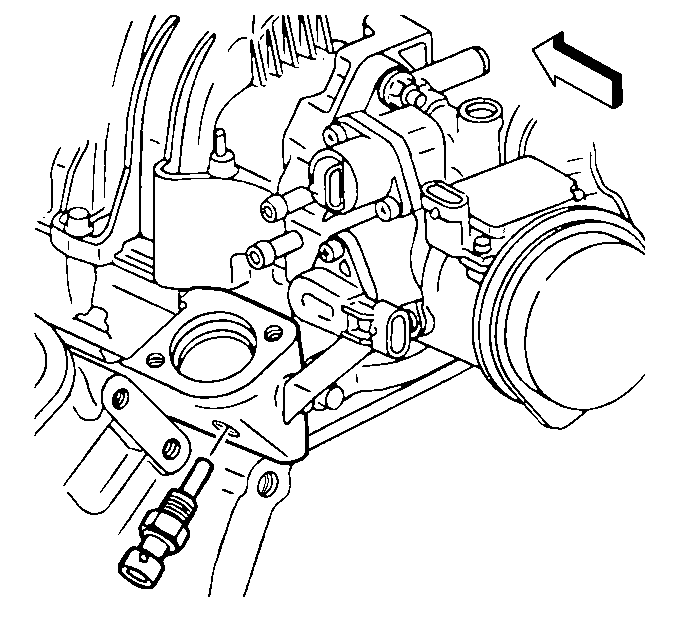Removal Procedure
Important: Care must be taken when handling the engine coolant temperature (ECT) sensor. Damage to the ECT sensor affects proper operation of the fuel injection system.
- Disconnect the negative battery cable.
- Drain the radiator coolant.
- Disconnect the ECT sensor electrical connector.
- Use a 19 mm deep well socket and an extension in order to remove the ECT sensor.
Caution: Unless directed otherwise, the ignition and start switch must be in the OFF or LOCK position, and all electrical loads must be OFF before servicing any electrical component. Disconnect the negative battery cable to prevent an electrical spark should a tool or equipment come in contact with an exposed electrical terminal. Failure to follow these precautions may result in personal injury and/or damage to the vehicle or its components.

Installation Procedure
Important: Care must be taken when handling engine coolant temperature (ECT) sensor. Damage to the ECT sensor affects proper operation of the fuel injection system.
- Hand start the ECT sensor into the engine.
- Connect the ECT electrical connector.
- Refill the radiator with coolant.
- Connect the negative battery cable.
- Start the engine and inspect for leaks.
- Inspect the coolant level.

Notice: Use the correct fastener in the correct location. Replacement fasteners must be the correct part number for that application. Fasteners requiring replacement or fasteners requiring the use of thread locking compound or sealant are identified in the service procedure. Do not use paints, lubricants, or corrosion inhibitors on fasteners or fastener joint surfaces unless specified. These coatings affect fastener torque and joint clamping force and may damage the fastener. Use the correct tightening sequence and specifications when installing fasteners in order to avoid damage to parts and systems.
Tighten
Tighten the ECT sensor to 30 N·m (22 lb ft).
